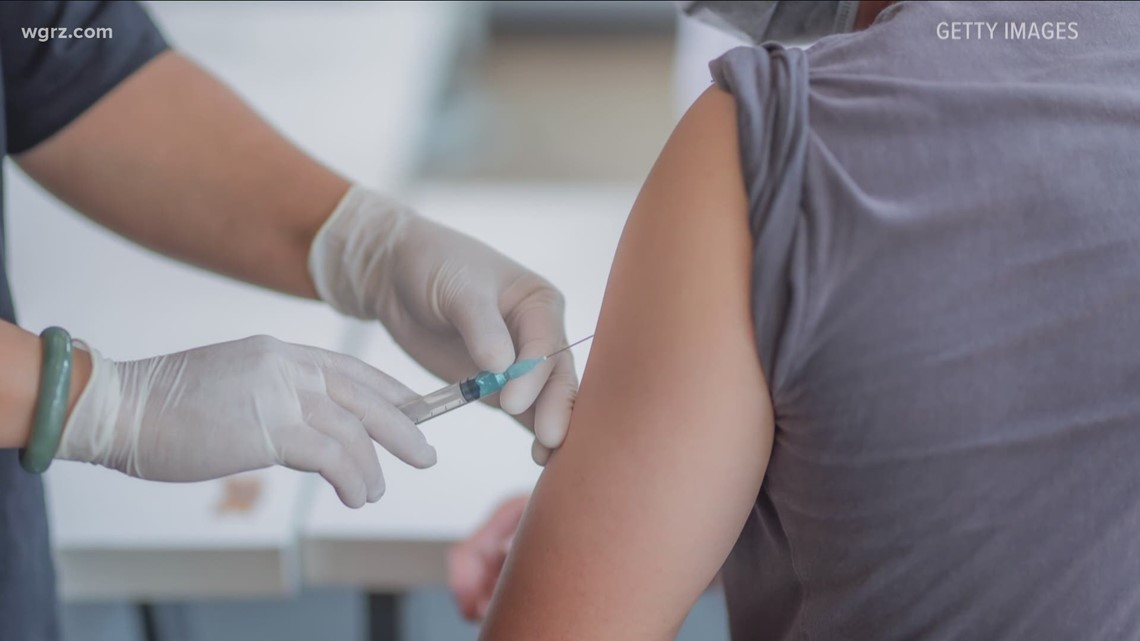BUFFALO, N.Y. — New Yorkers with select comorbidities and underlying conditions can officially start looking for appointments to get the COVID-19 vaccine.
The state previously announced that people with certain comorbidities and underlying conditions would be eligible for the vaccine starting Monday. However, the state's "Am I Eligible" website launched a day early, allowing New Yorkers to start looking up appointments on Sunday.
According to the governor's office, the "Am I Eligible" screening tool was going to be updated with comorbidities and underlying conditions at 8 a.m. Sunday. The governor's office adds that new appointments will be released on a rolling basis over the next week.
A state spokesperson says the "Am I Eligible" website got a tremendous increase in volume, averaging 350 appointments per minute Sunday morning.
However, 2 On Your Side heard from several viewers who said they could not find the changes to the state website that allow people with comorbidities to register.
The state says if that happens to you, your browser may be loading a cached version of the website.
To see the changes, you may need to clear the cache or use a different browser. Holding down the "control" key and pressing "F5" will also force some browsers to load an updated version of the page.
In addition, local health departments are expected to receive vaccine allocations for county residents in this category. The Erie County Department of Health announced Saturday that it plans to distribute next week’s vaccine allocation for that category to hospitals.
People with qualifying health conditions will have to provide either a doctor's letter, a signed certification, or medical information evidencing comorbidity in order to show they are eligible.
Due to a limited supply of vaccines, and increasing demand, New York State is urging patience during this time.
Here's the full list of comorbidities and underlying conditions released by the state.
- Cancer (current or in remission, including 9/11-related cancers)
- Chronic kidney disease
- Pulmonary Disease, including but not limited to, COPD (chronic obstructive pulmonary disease), asthma (moderate-to-severe), pulmonary fibrosis, cystic fibrosis, and 9/11 related pulmonary diseases
- Intellectual and Developmental Disabilities including Down Syndrome
- Heart conditions, including but not limited to heart failure, coronary artery disease, cardiomyopathies, or hypertension (high blood pressure)
- Immunocompromised state (weakened immune system) including but not limited to solid organ transplant or from blood or bone marrow transplant, immune deficiencies, HIV, use of corticosteroids, use of other immune weakening medicines, or other causes
- Severe Obesity (BMI 40 kg/m2), Obesity (body mass index [BMI] of 30 kg/m2 or higher but < 40 kg/m2)
- Pregnancy
- Sickle cell disease or Thalassemia
- Type 1 or 2 diabetes mellitus
- Cerebrovascular disease (affects blood vessels and blood supply to the brain)
- Neurologic conditions including but not limited to Alzheimer's Disease or dementia
- Liver disease


